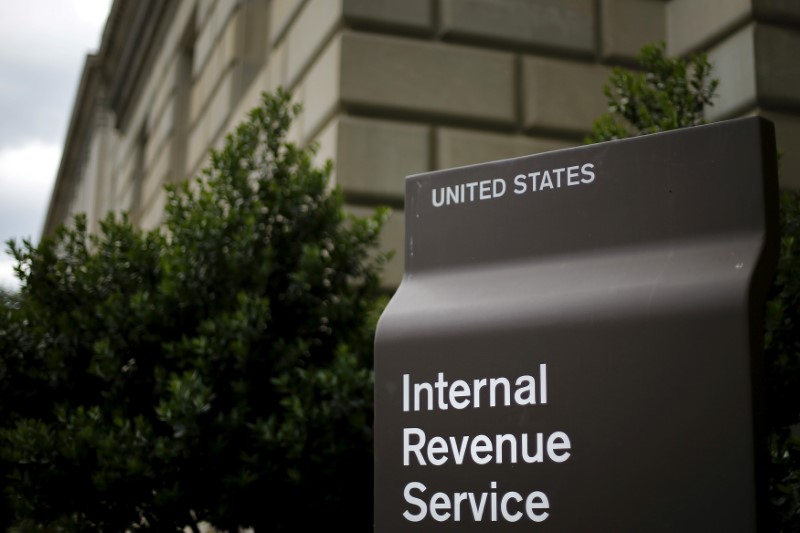By Andy Sullivan
WASHINGTON (Reuters) - In order to put recession-fighting checks into the hands of millions of Americans, the U.S. government will rely on a tax agency that has fewer workers, a smaller budget and the same 1960s-era computer systems it had the last time it was asked to do so.
Hollowed out by budget cuts and hobbled by obsolete technology, the U.S. Internal Revenue Service has struggled over the past decade. Audits have dropped and taxpayer service has suffered, agency figures show.
Now Congress and the Trump administration are piling on more work as they scramble to contain the fallout from the coronavirus, which threatens to plunge the world's largest economy into recession.
The U.S. Senate approved a massive stimulus bill on Wednesday that would provide payments of up to $1,200 to millions of Americans. It also includes a range of tax breaks for businesses and individuals. The House of Representatives is expected to pass it on Friday.
Treasury Secretary Steven Mnuchin said he wants the payments to go out by early April.
Experts say it is likely to be a matter of months, not weeks, before those payments arrive. They say the flurry of activity could hurt the IRS' ability to carry out its other routine tasks.
"It is the one agency that can do this stuff well. But that's at the harm of everything else it's supposed to do," said Nina E. Olson, who served as the IRS's National Taxpayer Advocate from 2001 to 2019.
Aside from the direct payments, the IRS will also have to oversee a new range of tax breaks for businesses and individuals included in the bill. The agency also must implement a different set of business tax credits that President Donald Trump signed into law last week to provide paid sick-leave benefits to workers.
Mnuchin last week pushed the tax filing deadline for U.S. businesses and households back to July 15 from April 15.
Economists say direct payments are one of the most effective ways to generate economic activity because people who get the money tend to spend it quickly.
In 2001, the IRS needed more than six weeks to issue the first rebates authorized by President George W. Bush's tax cut. In 2008, the IRS issued its first payments to fight the Great Recession nearly three months after Bush signed off on them.
Since then, the agency has suffered a decade of austerity. Its budget is now 20% smaller when adjusted for inflation than it was in the 2010 fiscal year, according to the advocate's office. Staffing has also fallen 20%, to 73,550 employees.
The IRS has struggled to find employees who can work with the COBOL language that underpins a computer system first set up in 1968, according to the Government Accountability Office.
Now it must figure out how to staff its processing centers at a time when local authorities are urging people to stay home. On its website, the IRS is asking taxpayers not to call its hot lines with questions about the direct payments.
The agency said last week that it is closing its 300-plus in-person assistance centers but would continue to process tax returns and help taxpayers "to the greatest extent possible."
"I don't think any of the policymakers have given any thought to the practical implications of actually doing this. The IRS doesn't have the resources to do it," said Howard Gleckman, a senior analyst at the Urban Institute's Tax Policy Center.
Before the IRS issues payments, agents will have to calculate the amount based on income and family status, and may not have current bank information for direct deposits or current addresses to mail out physical checks.
They will, however, be helped by the fact that 89% of filings were made electronically in 2018, up from 58% in 2008.
At the end of the day, the IRS will get the money out the door, said Charles O. Rossotti, who headed the agency between 1997 and 2002.

"They won't do it as fast as the politicians want, and they won't get it perfect," he said. "But if they want to send out $500 billion to 100 million people, they'll get it done."